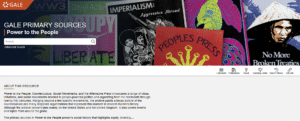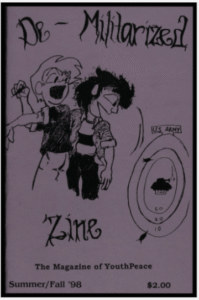We all know that DIY zines are a brilliant way for communities to share knowledge and information. Here at ECA at the UoE we are very fortunate to have access to many online databases of primary source archive material, including zines. One such example is Power to the People: Counterculture, Social Movements, and the Alternative Press.
Power to the People showcases a range of ideas, initiatives, and social movements devoted to people-powered politics and organizing from the nineteenth to the twenty-first centuries. Ranging beyond a few specific movements, the archive paints a broad picture of the counterculture and many disparate organizations that represent this moment in modern Western history. Although the archive concentrates mainly on the United States and the United Kingdom, it also covers events and topics from around the globe.
The primary sources in Power to the People presents social history that highlights equity, diversity, and inclusion. The materials document issues of social justice and how attitudes about civil rights, gender equality, the environment, the government, and many of society’s institutions shifted dramatically to include citizen involvement, public welfare, and the planet’s health in the twentieth century. The archive presents a social history that highlights equity, diversity, and inclusion in materials created by the last generations that depended on primarily print communication, offering a unique reflection of the time before the growth of the internet and social media.
Alternative press publications throughout the archive represent anti-establishment and countercultural ideas and movements through art, satire, humour, and alternative lifestyles. Although these are often overlooked as vehicles for providing perspectives on social movements and countercultural ideas, they can have just as great an impact as mainstream social movements. The alternative press titles in Power to the People are unique, examining social issues, politics and government, sexuality, diversity, and more.

You can access Power to the People: Counterculture, Social Movements, and the Alternative Press via DiscoverEd, or through the primary source databases listed here.

We have a subject guide to zines and artists’ books at ECA Library, here.